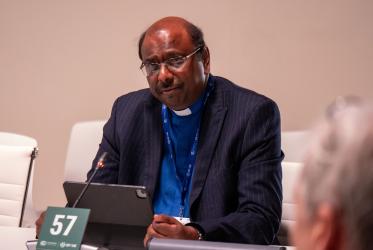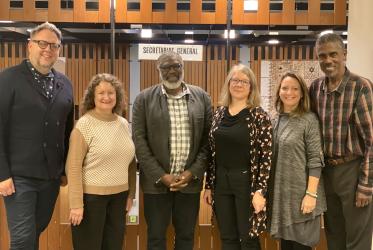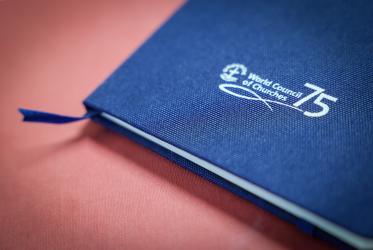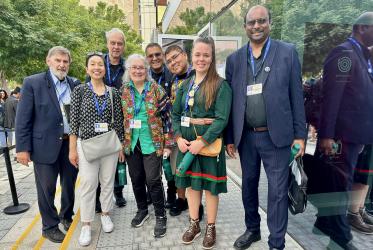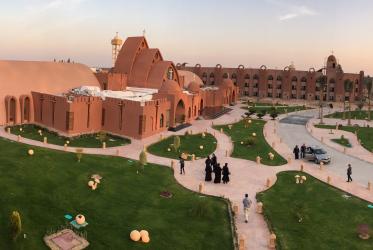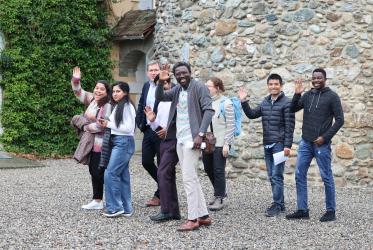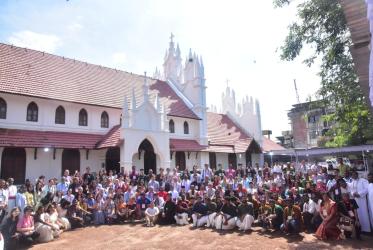Displaying 61 - 80 of 2166
At COP28, WCC general secretary hopes for “less talk and more walk”
01 December 2023
Towards a Global Vision of the Church, Volume II
Explorations on Global Christianity and Ecclesiology, Faith and Order Paper 239
27 November 2023
WCC institute encouraged rethinking theology
23 November 2023
Blending local and global ecumenism in Asia
02 November 2023
Ahead of Her Time
Pan-African Women of Faith and the Vision of Christian Unity, Mission, and Justice
01 November 2023
Thirty days that changed the ecumenical movement
23 October 2023
